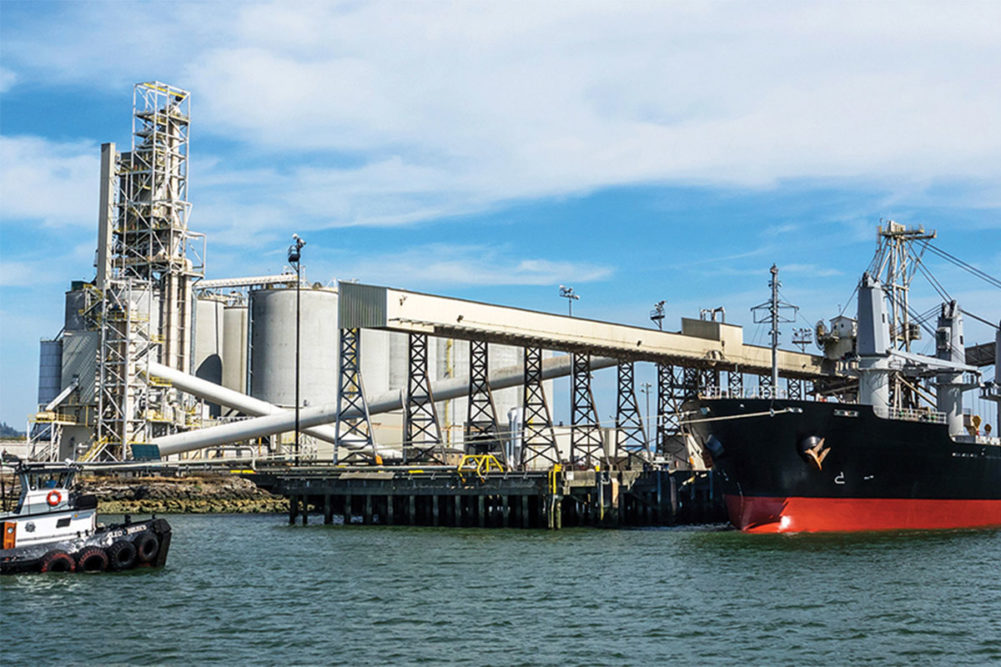OMAHA, NEB. — The board of directors of Ag Processing Inc. (AGP) has approved an expansion and upgrade of its export facilities at the Port of Grays Harbor (POGH) in Aberdeen, Wash.
As part of the expansion, AGP said it plans to upgrade its current facilities at Terminal 2, including the construction of additional storage, and the addition of a new ship loader at POGH’s Terminal 4. Terminal 2 and Terminal 4 are both deep-water berths with quick access to the open ocean, AGP said, and the planned expansion will enable AGP to load multiple ships up to and including Panamax-sized vessels.
“With the expansion in US soybean crush capacity driven by the demand for renewable diesel feedstock, soybean meal production in the United States will outpace historical increases in domestic usage,” said Chris Schaffer, chief executive officer of AGP. “AGP’s western US processing locations fit well to supply additional protein to the growing Southeast Asian and Asian markets. The US currently provides less than 20% of overall Southeast Asian soymeal demand. Through the years, AGP has developed a very strong relationship with protein buyers in this region. This project will significantly improve speed, capacity and product availability for the benefit of current and future international customers.”
Craig Pietig, vice president of ag products at AGP, noted that with time more valuable than ever, the upgrades and new ship loader will improve logistics for the company’s plants, enhance production, and reduce vessel idle time.
“All of this will reduce costs for the end customer ensuring the Port of Grays Harbor remains a cost-effective port for soybean meal exports and other processed commodities,” Mr. Pietig said. “In the past, exports have been curtailed by US soybean meal production capacities. Once the announced expansions in the domestic soybean crushing industry are in operation there will be additional soybean meal to better serve the growing international demand for protein. When this project is completed, our unloading capabilities will rival grain terminal speeds and the expanded facility will provide a needed marketing channel for the anticipated increase in supply.”
AGP said it expects operations at the port to begin in 2025, with final construction decisions and timeline contingent on negotiations with federal, state, local, and POGH officials regarding economic development incentives, lease terms, infrastructure improvements and regulatory considerations.
“We are committed to working with the port and government officials to develop and complete this important project in order to better serve our customers and also provide benefits to our cooperative members, their farmer owners, and the surrounding community,” Schaffer said.
The announcement comes less than two months after AGP unveiled plans to build a new soybean processing plant near David City, Neb. The facility will have the capacity to process more than 50 million bus of soybeans per year.
AGP, based in Omaha, is the largest cooperative soybean processor in the world. It is owned by more than 150 local and regional cooperatives throughout the Midwest, representing over 200,000 farmers.






